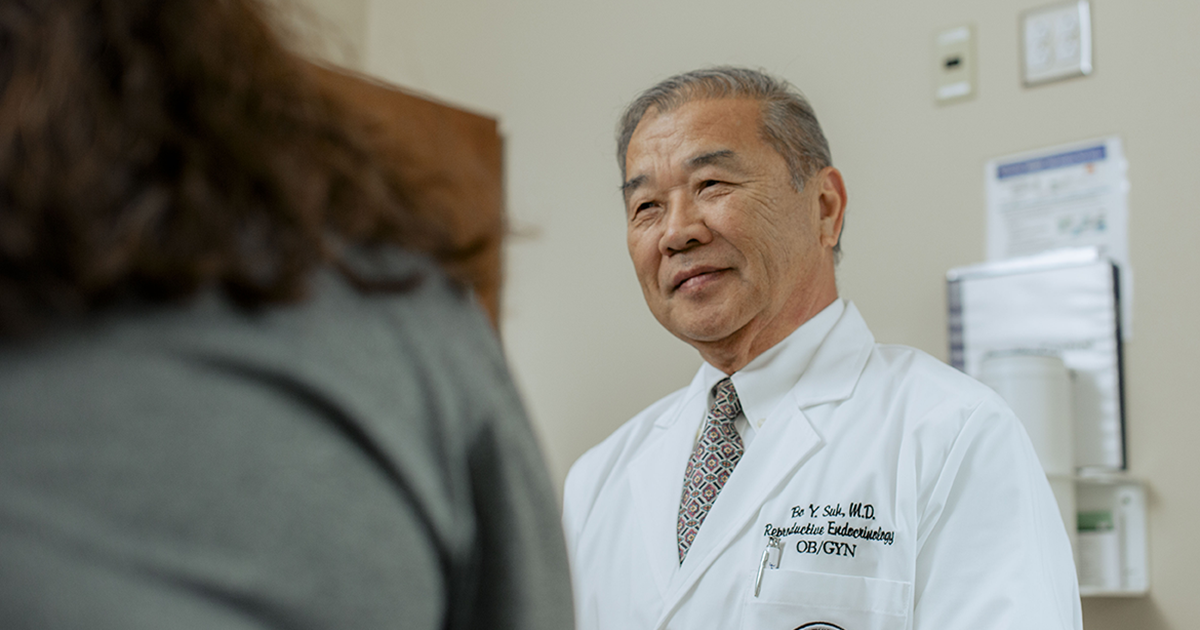Should I See a Fertility Specialist?
How to know when to visit a fertility doctor
Questions regarding fertility often come with complex and emotional layers of an individual's experiences and circumstances. If you are planning a pregnancy and have experienced trouble, you might be wondering how you know when to seek professional advice or testing.
Why a Fertility Specialist?
Infertility is complicated, and issues affect men and women equally. When you start trying to get pregnant or if you have basic questions, an Ob/Gyn or primary care provider is the best source of information. If you are experiencing difficulties conceiving, however, a fertility doctor might be the next step.
These physicians are trained specifically to treat men and women who are unable to conceive. Specialists are up to date on the science of reproductive endocrinology and infertility, including research and techniques that might help people who are struggling to get pregnant.
But when do you reach out to a fertility specialist? Here are a few considerations:
Time Without Success
Generally speaking, it could take up to a few months to conceive, and infertility
concerns arise when you are unable to conceive after 12 months of trying. If you are
under 35 and you have been having sex without any kind of birth control for 12 months,
it might be time to reach out.
Age
For women 35 or older, you might consider finding a fertility specialist earlier than
the 12-month time frame. The quality of a woman’s eggs declines much more quickly
starting at the age of 35. This means it might be time to look into a specialist if
you have been trying for six months without success and have already spoken to your
Ob/Gyn.
Women who are 40 and older are considered part of the high-risk category for pregnancy, so if you are 40+ years old, you might consider seeing a specialist at the beginning of your journey to conceive.
Period Regularity
An irregular period could be a sign of a number of things. If you have an irregular
period, bleed between periods, have very heavy periods or other ovulatory problems,
these could be symptoms that affect your fertility.
Conditions like polycystic ovary syndrome (PCOS) are important to consider, so if you have PCOS, you might want to see a specialist right away. Even if you’re unsure about the cause of your irregular period, fertility specialists can help you with helpful strategies and treatments to get on track for conception.
Miscarriages
Miscarriages are common, affecting 10-20% of known pregnancies. Despite being common, they are still significant. If you have
had miscarriages, that might be an indicator to talk to a fertility specialist.
Other Medical Considerations
There are medical conditions, including common ones, that could affect the ability to conceive. Thyroid disease, diabetes, and other pre-existing conditions might impact a woman’s chances of becoming pregnant. Often, these conditions are ones you can speak to your primary care provider about working through these issues and safely conceiving.
Men also experience issues that affect fertility. These can involve low sperm count or poor sperm motility, and a fertility specialist can help with evaluations to find out more about these problems if you are having trouble conceiving.
Help is Here
Getting pregnant can be overwhelming, and there are many factors to consider. Fertility specialists can help you find answers to your questions and concerns. As compassionate professionals, they understand the trials of navigating this emotional journey.
Dr. Bo Y. Suh, M.D., is board-certified in both Ob/Gyn and Reproductive Endocrinology
and Infertility. He is accepting new patients at the Texas Tech Physicians Reproductive
Endocrinology Infertility Clinic in Lubbock. Schedule your appointment today: 806.743.4256.
